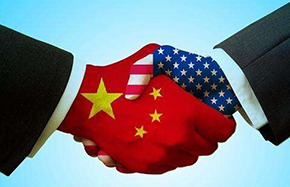Hopefully, lavish galas won't keep going on
By Zhu Ping (chinadaily.com.cn) Updated: 2013-08-14 22:40When I watched Celine Dion sing My Heart will Go on at this year's CCTV Spring Festival gala, it reminded me of the good ole' days in China when many young hearts ached watching the 1998 film, Titanic.
I was later astonished that Dion allegedly received as much as $2 million for her short appearance on CCTV. Producers refused to confirm the figure, citing "commercial secrets".
Sadly, what's truly long gone are the good ole' galas.
On Tuesday, five ministries came together to warn of "severe punishment" for local officials who spend public funds on lavish official celebrations and pay exorbitantly for celebrities at evening galas.
The ban is a clear answer to the public's long-held complaints about money-consuming visual feasts.
It's widely believed that China holds the most televised galas. For Spring Festival this year, there were at least 20 local TV galas in addition to the major gala hosted by CCTV. Each is a facsimile of the other. Each costs millions of yuan. In recent years, more have mushroomed across the nation in the shape of festivals, anniversaries or opening ceremonies.
Critics argue that since these galas are commercial vehicles sponsored by enterprises, there is nothing to find fault in, no matter how much they cost. Nonsense.
Enterprises indeed have the right to decide on how they spend or how they drum up publicity, but they are also beholden to society. Only those who feature images of honesty and responsibility will gain the trust of consumers.
For some superstars, $2 million is chump change. But please don't forget in China there are still 128 million people living under the poverty line on 6.3 yuan ($1) a day. A song might excite an audience's hearts to go on, but it doesn’t help the poor to trudge on.
This year, a developer in Fuping, Shaanxi province, fell in arrears of about 49 million yuan in wages to migrant workers he hired. It was also exposed that the developer invited poisonous Hong Kong celebrity Cecilia Cheung to show up for an eight-minute appearance at an opening ceremony to the tune of 1.3 million yuan. No matter how famous a celebrity is, no one is entitled to waste money owed to the underprivileged.
Moreover, galas are mostly a waste of resources. They're anti-green, so to speak. They cost millions of yuan in stage props, costumes and lights, all of which are usually used just once. Such a waste of resources is condemnable when the nation has placed environmental protection high on its priority list.
What's more, public funds can be traced to luxury shows, even in some poor areas. In May 2012, Fuyuan, Yunnan province, one of the poorest counties in the nation, spent millions of yuan to invite stars for a culture festival. In 2011, Yunxi, Hubei province, another impoverished county, spent millions to invite TV news hosts, singers and actors to boost a local tourism festival. Neither of the poor counties experienced any remarkable economic turnaround after their galas, which critics have now mocked as something "hosted by the local government, paid by taxpayers, but gained by rich stars".
For TV stations, the key to success lies in the content of programs that can have an effect on people, not on glorious but superficial shows of beautiful clothing, stars and high-tech wonders. We’re all getting very tired of these extravagances.
For some local governments, the key to prop up local economies lies in tapping into the potential of its residents and supporting the development of local businesses. It makes no sense to force local enterprises to share the burden in paying for appearances by celebrities. Luxurious galas bring more economic burden than opportunities. Sadly, this won't change in the near future.
The ban is a timely warning to keep gala lovers level-headed. Hopefully, it works.












